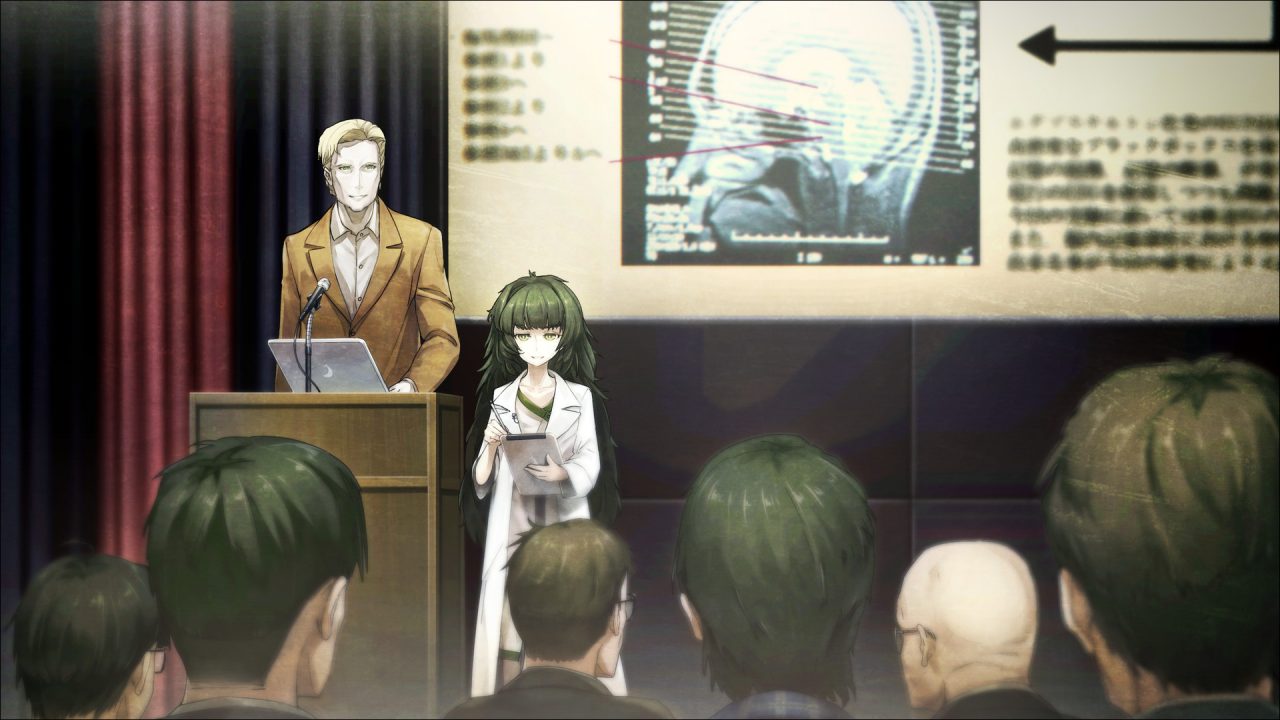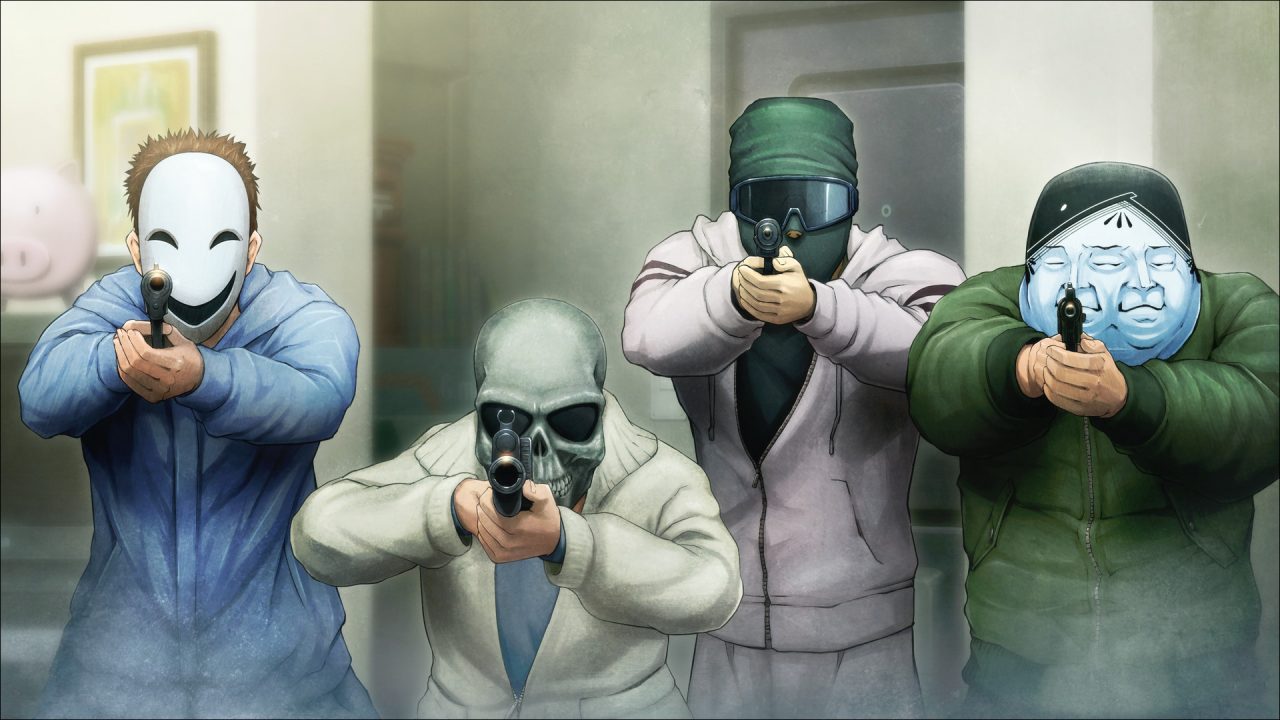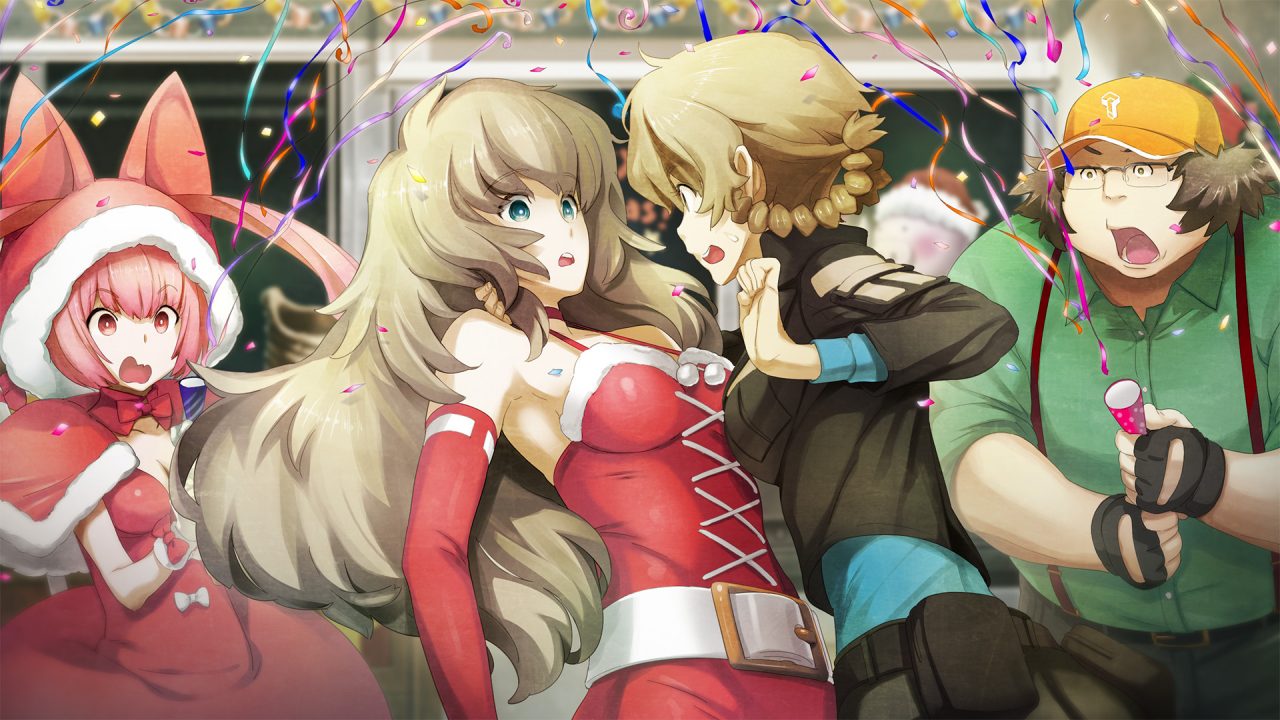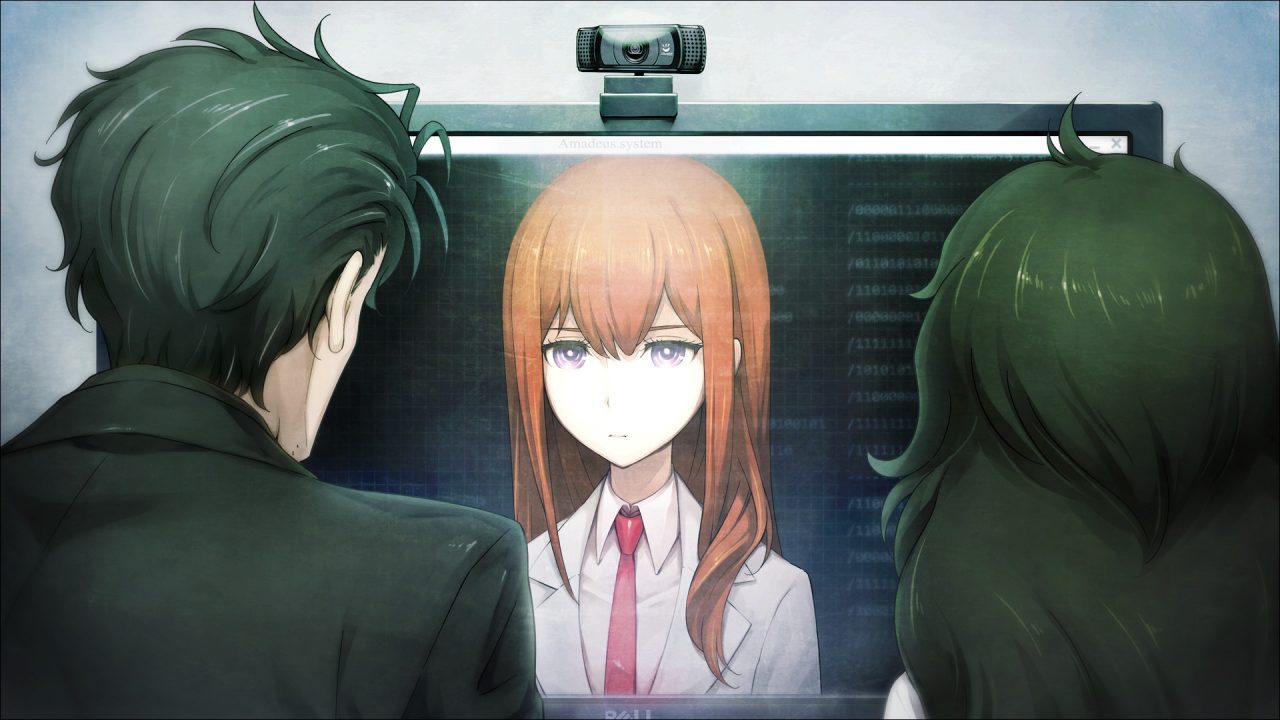I have long held that video games can deliver stories every bit as engaging as any other medium save, perhaps, for the written word. For example, the fourteen-volume fantasy epic The Wheel of Time has an almost unimaginable degree of depth due to a ludicrously high page count, but also because of how much can be conveyed when a writer invites their readers not just to read but to envision.
It should come as little surprise, then, that visual novels number among my most beloved genres in gaming. The marriage between the potential power of sheer script length and lush, traditionally still, imagery can be a strong one. Should voice acting be a part of the experience, it is not unlike listening to an eBook made all the richer via vibrant sound effects and scene-setting artwork that challenges us to imagine the rest. If a visual novel offers players critical dialogue choices and branching paths and ensures that they are meaningful and compelling, then there’s a very real chance that I adore it.
The original Steins;Gate, a 2009 visual novel developed by Mages and published internationally in 2014 courtesy of PQube, is one of those games. Despite a few attached asterisks, such as some nauseatingly otaku-overloaded lines of dialogue from one of the major characters, the overall quality of Steins;Gate blew me away. Its ability to tackle advanced science fiction concepts while steadily ramping up into an appropriately exhausting psychological thriller left me speechless. And yet, for one reason or another, I held off on checking out its indirect sequel (for fear of spoiling the original, let’s just leave it at that) for years.
Thank goodness I’ve finally played Steins;Gate 0, in truth a frustrating game, but a game that at times not only reaches the heights of its predecessor — it exceeds them.

I know that was a long preamble, but Steins;Gate 0 demanded it of me because I needed you to understand that I went into this journey filled with hope. Hope that Steins;Gate 0 can stand side-by-side with its tremendous predecessor. Hope that its cast will uniformly evolve in exciting ways. Hope that its art would be just as pretty as the first game’s.
Some of that is true. Indeed, I have nothing but universal praise toward the artwork. Ryohei Fuke has once again hit it out of the park with illustrations that not only paint complete pictures of every given setting but captivate me even without any context. Colors are often neither muted nor highly saturated; they toe the line between both, and I’d like to think that was intentional. Like Steins;Gate before it, Steins;Gate 0 seems to exist in a world where the sophisticated and the absurd frequently clash, but periodically transform into abrupt comedy. It’s like a melting pot of plot elements that sometimes require a collegiate understanding to grasp in full.
More often than not, Steins;Gate knows when to curb its comedic enthusiasm, especially as the story progresses. It also provides a (very) helpful ever-expanding list of key terms and their respective definitions, handy for preventing players’ brains from exploding due to the thickness of the story material. Thankfully, Steins;Gate 0 continues that particular trend. Unfortunately, its writing does not consistently display the first game’s relatively steady descent into darkness despite a plot that, if anything, manages to be grimmer than the original’s own.

And make no mistake, things can get dire in Steins;Gate 0. There are several available routes, including the “true ending,” and tense moments litter each of them. What’s more, the complex persona of Okabe Rintaro not only returns but expands exponentially. Rintaro is a protagonist who is haunted by failure, and while I won’t go into detail as to what that means for those among you who wish to remain 100% spoiler-unsullied, I will say that you’ll know within minutes after starting your file. Or rather, that will be the case unless you haven’t played Steins;Gate beforehand.
This, I must emphasize, would be a significant mistake. Steins;Gate 0 relies upon an intimate knowledge of what came before it. The game assumes you’re well-acquainted with Okabe’s trials and tribulations, as well as the wit and wonder of that game’s heroine, Kurisu Makise. It’s not merely a matter of heart-wrenching emotional beats landing with a thud without context — though I wouldn’t recommend playing a visual novel that doesn’t make its readers feel something regardless. Simply put, I’m not sure this game will make even a semblance of sense if you’ve not, at very least, watched Steins;Gate‘s anime adaptation.

The frustrations here stem from the fact that Steins;Gate 0 wants you to embrace all its slice-of-life moments even when they run a genuine risk of killing the gloomy mood established mere sentences beforehand. To be clear, I’m not averse to primarily humor-based games, and while the otaku-related fare that makes its return from Steins;Gate continues to gross me out as often as it makes me chuckle, there are a fair few genuinely funny bits in Steins;Gate 0. The issue is the pacing. In The Empire Strikes Back, Han and Leia’s hilarious banter gradually gives way to something more serious, not least because one of the two characters ends up encased in carbonite. Imagine instead that the pair kept arguing even as the Millennium Falcon escaped from Cloud City, despite Han being stuck inside a vertical metal coffee table, and Chewbacca simultaneously makes an inappropriate comment about lolicon culture.
Not just in fairness, but as an act of salvation, Steins;Gate 0 isn’t always like that. There are escapes from the metaphorical Cloud City that never descend into nonsense. Whenever this happens, and in every route it happens more than once, the narrative shifts into overdrive, delivering deliciously painful beats that my heart and mind will be carrying for the rest of my days. It’s here where Steins;Gate 0 shines, and it shines so brightly I temporarily forget I have issues with it in the first place. Composer Takeshi Abo’s terrific musical score is the pitch-perfect accompaniment to it all, the icing on the cake of sadness that makes the heroes’ eventual victory taste all the sweeter.

Perhaps, in the final telling, I am left with a state of melancholy. The highs and lows both eclipse and collapse above and beneath what came beforehand. Scenes of pure brilliance arrive quickly, but they fade too often into the disappointingly mundane. There’s a lot to like about Steins;Gate 0, but it cannot entirely overcome its shortcomings. Your experience may vary; reviewers can aim for the stars searching for objectiveness and level-headed analysis, but ultimately my take on the game is as subjective as they come.
For my part, Steins;Gate 0 probably will not be joining that list of all-time greats. But I am glad to have played it. I’ll speak fondly about many parts in the years to come, even if the completed puzzle isn’t the picture I was hoping it would be. Maybe check it out sometime.


